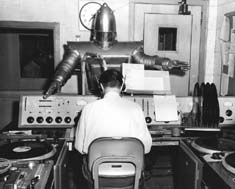Jerry Kaplan, author of Humans Need Not Apply, thinks technology may make warfare safer (well, relatively). Perhaps, but that’s not the goal of all combatants. He uses the landmine as an example, arguing that a “smarter” explosive could be made to only detonate if enemy military happened across it. But any nation or rogue state using landmines does so precisely because of the terror that transcends the usual rules of engagement. They would want to use new tools to escalate that threat. The internationally sanctioned standards Kaplan hopes we attain will likely never be truly universal. As the implements of war grow cheaper, smaller and more out of control, that issue becomes more ominous.
In theory, robotized weapons could make war less lethal or far more so, but that will depend on the intentions of the users, and both scenarios will probably play out.
From Kaplan in the New York Times:
Consider the lowly land mine. Those horrific and indiscriminate weapons detonate when stepped on, causing injury, death or damage to anyone or anything that happens upon them. They make a simple-minded “decision” whether to detonate by sensing their environment — and often continue to do so, long after the fighting has stopped.
Now imagine such a weapon enhanced by an A.I. technology less sophisticated than what is found in most smartphones. An inexpensive camera, in conjunction with other sensors, could discriminate among adults, children and animals; observe whether a person in its vicinity is wearing a uniform or carrying a weapon; or target only military vehicles, instead of civilian cars.
This would be a substantial improvement over the current state of the art, yet such a device would qualify as an offensive autonomous weapon of the sort the open letter proposes to ban.
Then there’s the question of whether a machine — say, an A.I.-enabled helicopter drone — might be more effective than a human at making targeting decisions. In the heat of battle, a soldier may be tempted to return fire indiscriminately, in part to save his or her own life. By contrast, a machine won’t grow impatient or scared, be swayed by prejudice or hate, willfully ignore orders or be motivated by an instinct for self-preservation.•
Tags: Jerry Kaplan

